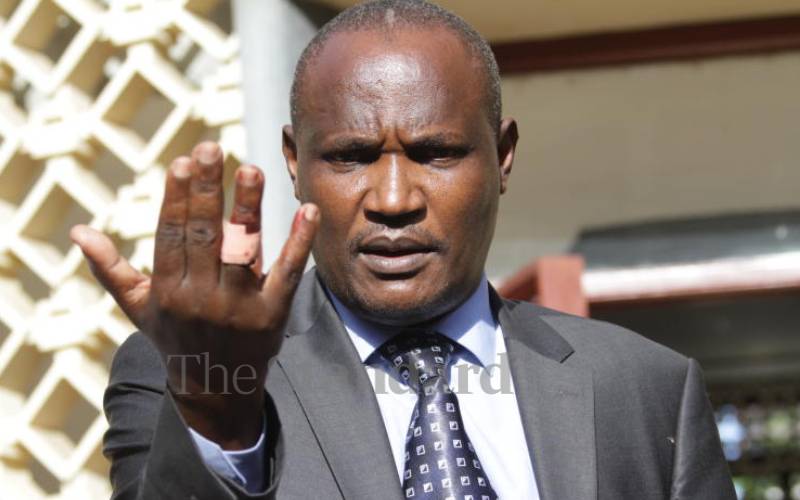×
The Standard e-Paper
Fearless, Trusted News

National Assembly Minority Leader John Mbadi addresses the media at Parliament moments after he was kicked out of the House. December 29, 2021. [David Njaaga,Standard]
Watching the acrimonious session in the National Assembly on Wednesday, it was clear that the divide was between the old guard who lived through one-party authoritarian state against those who grew up under a multi-party system, hence clueless on how it was back in the days of suffocating one-party rule.